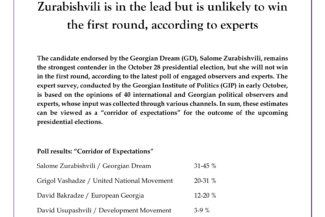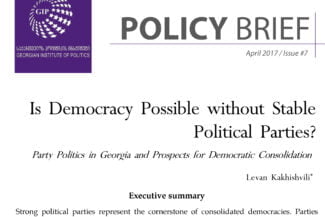29-04-2021
Authors: Bidzina Lebanidze, Elguja Khokrishvili, Salome Kandelaki, Nino Samkharadze, Givi Silagadze
Georgia’s parliamentary elections in 2020 resulted in a new political crisis, which further complicated the grave situation in the country resulting from the Covid-19 pandemic. In the context of the present crisis, the newly elected government is facing particular problems. It should both overcome the political crisis and improve the troubled socio-economic situation caused by the pandemic. Under these difficult circumstances, political parties also have an important role to play in creating a stable political environment and putting the country onto a normal development track by working with the Government.
This report analyzes the foundations of the reforms announced and implemented during the first 100 days of GD’s new government, which entered office following the October parliamentary elections. In particular, we explore GD’s election program and assess to what extent campaign promises were implemented during the first 100 days. Furthermore, we analyze the feasibility of GD’s electoral promises based on assessments provided by various experts. Finally, the report discusses ways to overcome the post-election crisis between the government and the opposition and the challenges that may be faced by government in Georgia in the years to come.










